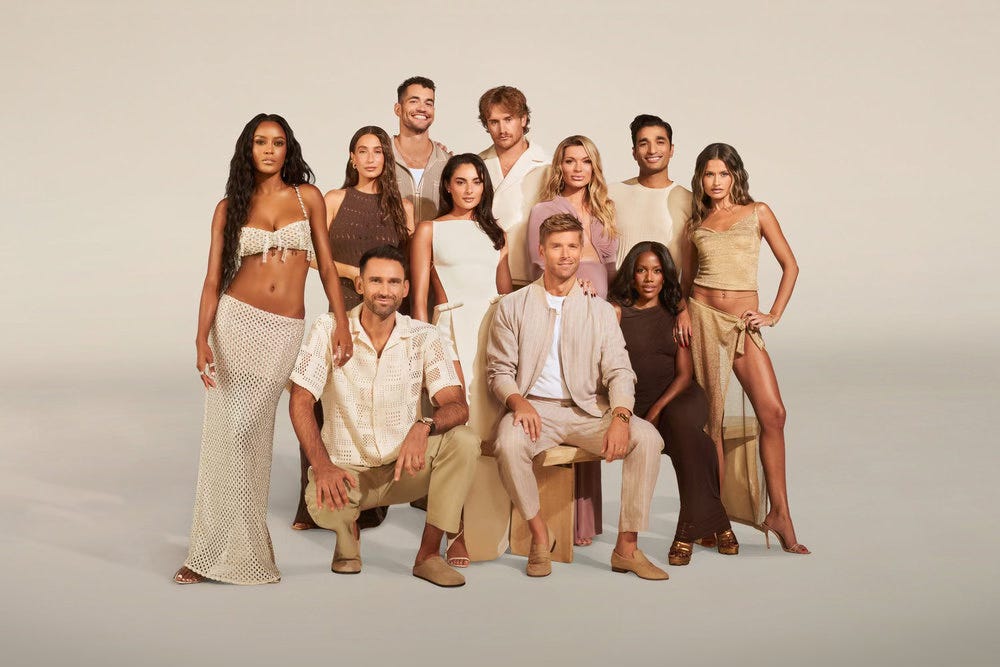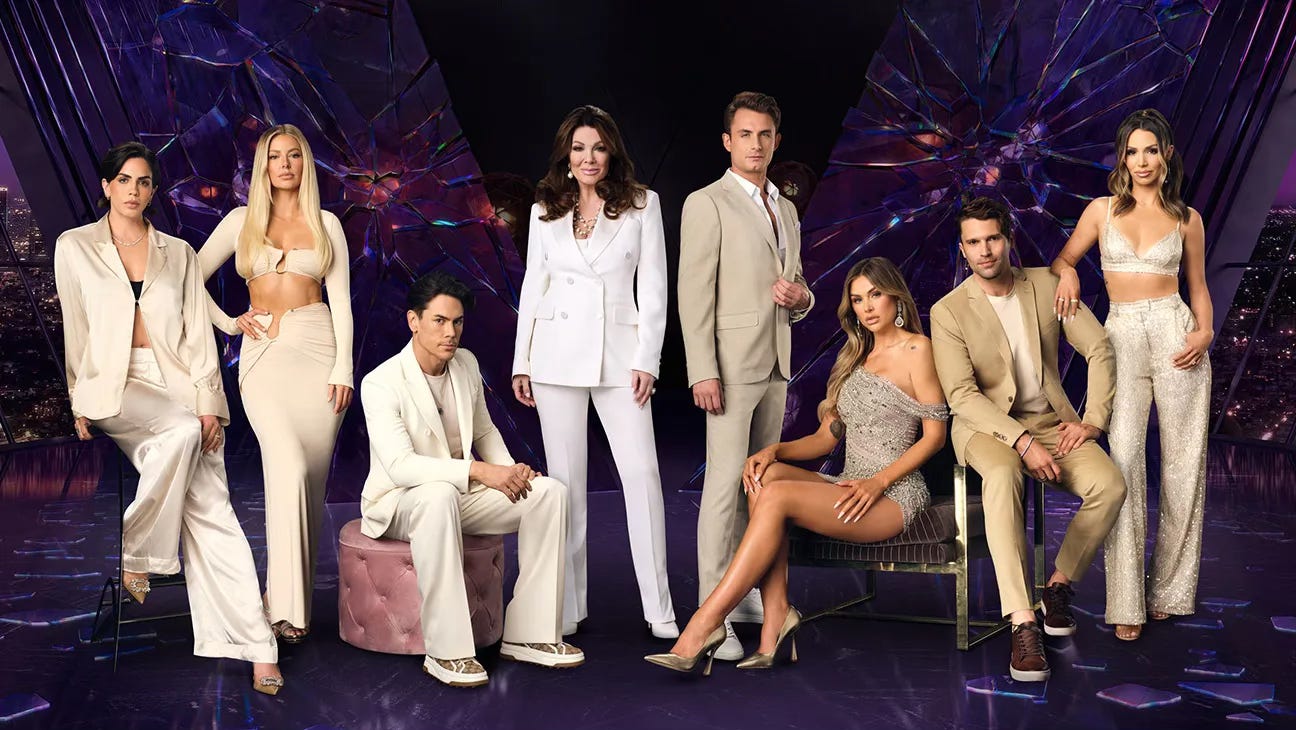The Marvel Cinematic Universe (MCU) is often celebrated as a monumental achievement in modern pop culture, spanning multiple decades and intertwining a rich tapestry of superheroes, villains, and interconnected storylines. It has become the gold standard for franchise-building, demonstrating a new way of storytelling that has influenced the landscape of blockbuster entertainment. But there exists another universe. A universe that has arguably been overlooked, yet has demonstrated a level of complexity and layered storytelling that rivals, if not surpasses, the MCU. This universe is none other than Bravo.
Bravo, home to a host of reality television series, is often seen as a guilty pleasure, a realm where drama and spectacle take precedence over narrative depth. However, when one looks closely, the Bravo universe proves to be a multifaceted, intricate world that is far more sophisticated than it appears at first glance. The comparison between Bravo’s complex, interwoven storylines and the MCU's carefully curated mythos reveals just how much deeper the Bravo universe is.
The Foundation: A Universe Built on Real Life
The MCU is rooted in fictional characters who possess superhuman abilities, living in a world where science and magic coexist. In contrast, Bravo's universe is entirely grounded in reality. It is a world populated by real people, not superheroes, but individuals with flawed personalities, intricate histories, and complex relationships. What Bravo understands and the MCU often misses is that real-life drama, whether through the dynamics of friendship, romance, or rivalry—has an inherent emotional depth that no CGI can replicate.
Bravo's universe spans across multiple shows that act as different windows into the lives of various groups of people. These shows, like The Real Housewives franchise, Vanderpump Rules, Below Deck, Summer House, and Southern Charm, each introduce unique settings, characters, and interpersonal dynamics. Though they may seem superficial on the surface, they reveal the complexity of human nature in all its messy glory. From exploring issues of class, identity, loyalty, and mental health to exposing the sheer vulnerability of its cast members, Bravo taps into a level of psychological realism that surpasses much of what is typically found in scripted entertainment.
Characters: Not Just Heroes or Villains, But Real People with Complicated Motivations
One of the most striking features of the MCU is its vast array of superheroes and villains, each with their own backstory and motivations. However, the MCU often works within the confines of clear moral delineations—heroes are good, and villains are bad. The complexity, while rich, is often flattened by the need for easily digestible narratives.
Bravo’s universe, on the other hand, thrives in the murky space between good and bad. Take The Real Housewives franchises as an example. Here, the cast members are not scripted villains or protagonists—they are women (and occasionally men) navigating complicated, real-life situations. A “villain” in the Bravo universe might be a woman who exhibits questionable behavior, but her actions are often rooted in personal pain, childhood trauma, or unresolved conflict. Her motivations aren’t clear-cut, and viewers are often left to grapple with their conflicting emotions—sympathy, frustration, and sometimes admiration.
Whether it’s a character like Nene Leakes of The Real Housewives of Atlanta, whose outbursts stem from both genuine emotional distress and a fierce loyalty to her family, or the calculated ambition of someone like Lisa Vanderpump from The Real Housewives of Beverly Hills, Bravo’s universe is filled with people whose motivations are driven by a series of real-world factors, rather than comic-book tropes. This layer of realism gives Bravo characters more depth, as they experience genuine evolution over time. Characters might redeem themselves, grow, or descend into further chaos, but it’s all tied to personal circumstances and psychological struggles rather than fictional plot devices.
Interconnected Worlds: A Web of Interactions Beyond the Surface
The MCU is lauded for its ability to connect characters and storylines across various films and TV shows, creating a sense of unity and overarching narrative. Characters cross over from one film to another, often influencing the larger plot in unexpected ways. While this is an impressive feat, Bravo’s universe operates on a different level of interconnectedness that is perhaps even more sophisticated.
At its heart, Bravo’s universe is one of collaboration and rivalry, with cast members constantly appearing across multiple shows. This is particularly evident in franchises like The Real Housewives, where crossovers between cities occur frequently, and stars from one show often make guest appearances on another. The Bravo universe is far from a linear progression of isolated narratives—it’s a dynamic ecosystem, where alliances shift, friendships are tested, and feuds can last for years. Unlike the MCU, where characters typically operate in separate narratives until a grand crossover event occurs (like in Avengers: Endgame), Bravo's shows feel as though they exist in a constant state of interconnectedness.
For instance, Lisa Vanderpump from The Real Housewives of Beverly Hills is not only a part of that show, but also runs a highly successful restaurant empire that is featured on Vanderpump Rules. The young cast of Vanderpump Rules is not just a group of employees—they are intertwined in the same social sphere as the older Housewives, offering a glimpse into how intergenerational dynamics work within the Bravo universe. Similarly, Southern Charm characters have appeared on Watch What Happens Live, The Real Housewives of New York, and even Summer House, creating a complex web of interactions. This interconnectedness provides a deep, almost soap opera-like experience that evolves across multiple seasons and shows, creating a more layered narrative structure than even the most ambitious MCU crossovers.
The Drama and Emotion: Not Just for Entertainment, But for Reflection
The MCU is often a celebration of action, heroism, and conflict that can feel larger than life. It’s a world where stakes are so high that they verge on the fantastical, and audiences are rarely given the time to pause and reflect. The focus is on spectacle—how the heroes will save the world, and how the villains will threaten it. On the other hand, Bravo thrives in emotional vulnerability, turning petty squabbles into poignant explorations of human nature.
The Bravo universe is emotionally raw. In a show like Below Deck, the tension between crew members is often rooted in real-world power dynamics, workplace issues, and personal insecurities. In Vanderpump Rules, what might seem like a trivial argument about a bar tab or a romantic betrayal often reveals deep-seated issues of trust, self-worth, and ambition. Bravo’s universe takes its time to show how interpersonal conflicts evolve over time, offering viewers a long-term emotional investment in characters’ growth or decline.
Perhaps the most powerful example of this is the way Bravo handles mental health. The real struggles of characters like Camille Grammer from The Real Housewives of Beverly Hills, who faced multiple personal tragedies, or the public unraveling of Teresa Giudice's life, including her incarceration, all play out in full view of the audience. These real-world issues are not glossed over for the sake of entertainment—they are explored with complexity, showing both the fragility and resilience of its participants. This emotional depth gives Bravo’s universe a level of authenticity that is absent in the polished, larger-than-life world of the MCU.
Conclusion: Bravo's Universe as a Mirror to Real Life
While the Marvel Cinematic Universe is undeniably vast and impressive in its scope, Bravo’s universe surpasses it in its emotional complexity, interconnectedness, and authenticity. The Bravo universe might be rooted in reality television, but its complexity comes from its ability to reflect the human experience in all its messy, contradictory glory. It is a universe where drama is not manufactured for the sake of action, but is a reflection of the real human condition—where friendships, betrayals, love, and ambition shape the stories of the individuals who inhabit it.
Bravo’s universe may not have the explosions or epic battles that characterize the MCU, but it offers something far more intricate—a series of stories that evolve in unpredictable ways, drawing viewers into a web of interwoven relationships and real-life drama. In the end, Bravo’s universe is not just a collection of reality shows; it is a sprawling, living, breathing reflection of human complexity that, in many ways, outshines even the most tightly crafted fictional universes. By learning from Bravo’s organic storytelling and emotional depth, the MCU has the potential to create a more connected, layered world—one where the characters’ personal stories and relationships drive the narrative as much as the action.






